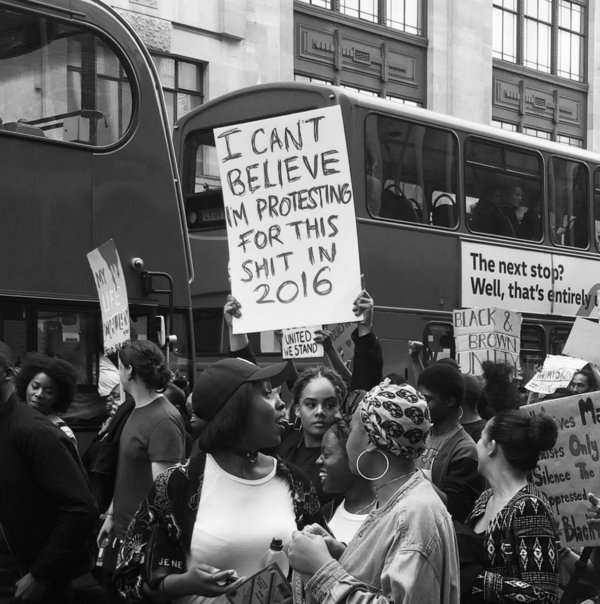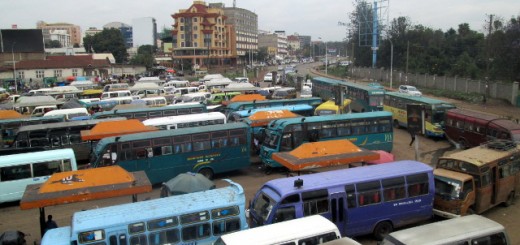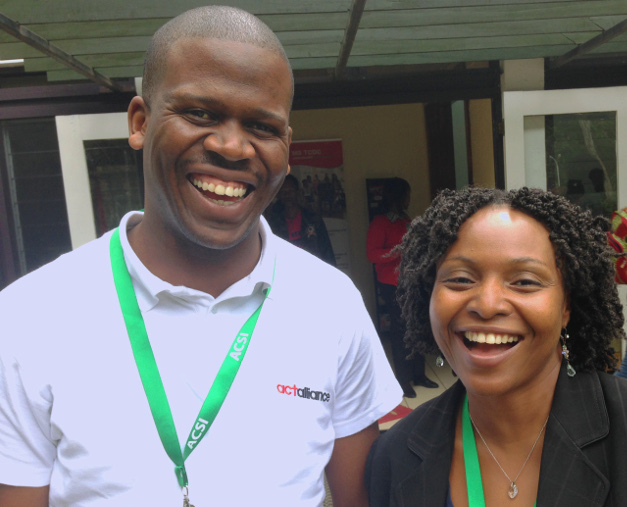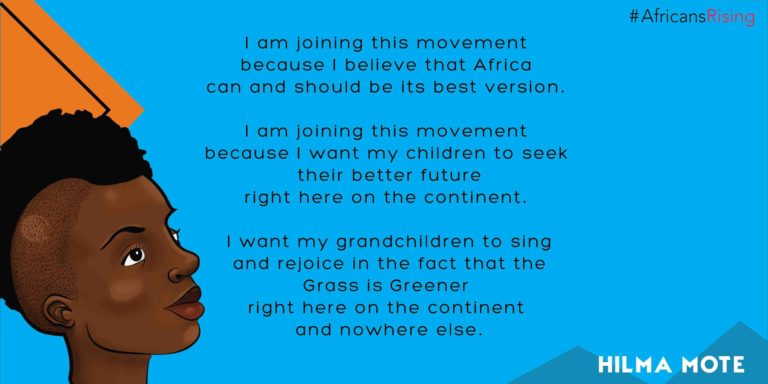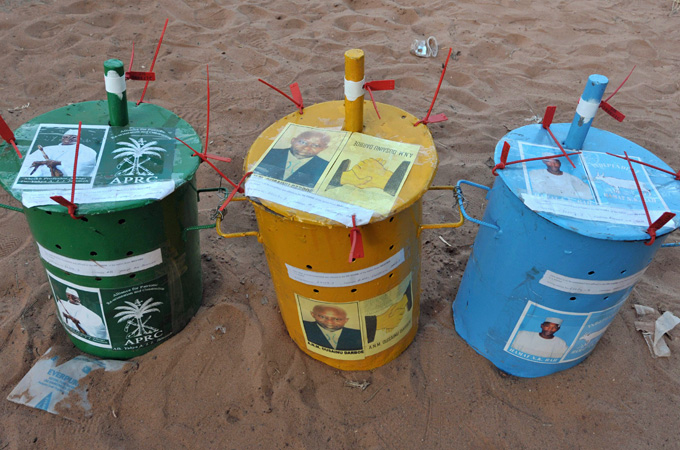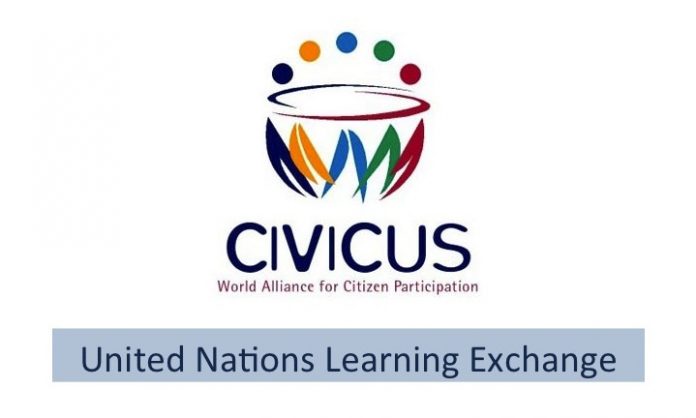In the midst of a civil war in South Sudan, young artists are learning the art of building a social movement, claiming civic space and empowering youth to seize their destiny.
Social movements often arise out of profound, historic moments or through the work of an extraordinary, iconic leader. But sometimes, they emerge unexpectedly when a group of people who have had enough with the status quo are suddenly inspired to clearly see the change they are capable of. Even in a war.
Ana Taban is one such movement. As is Africans Rising for Justice, Peace and Dignity. Ana Taban, which is Arabic for ‘I am tired’, grew out of fatigue and frustration among young artists, with cycles of violent conflict and deprivation in South Sudan. It was formed in response to a crisis – the resurgence of fighting between government and rebel forces in July 2016.
Last year, a group of us South Sudanese performance artists, attended a social change workshop. It was hosted byPAWA 254, a growing collective space created to support young creatives and promote arts and culture geared towards social impact in Kenya. The workshop organisers thought it would be difficult to work with us in our traumatised environment so they invited us to Nairobi.
When we saw what PAWA 254 were doing for their country as empowered young artists, our eyes were opened to what was possible in South Sudan. This was just two weeks after the outbreak of war again. We came back to Juba, the capital, inspired. We got together and started mobilizing artists. Ana Taban was born.
We started with a focus on social issues but because of the political crisis, have moved to focus on political issues as well because that’s what we need to address. A national dialogue aimed at ending the conflict is beginning and we are pushing youth to take ownership of their situation.
In December 2016, President Salva Kiir announced a national dialogue, aimed at restoring peace. With a steering committee just appointed, preparations for these inclusive, mediated talks are underway. In a nation where two out of every three South Sudanese are under the age of 25, we are urging young people to step up, engage this process and make their voices heard, claim their space.
As much as we are demand of government to take responsibility for the crisis, we urge youth to take ownership of the country and realize they have a role to play in helping to bring about change.
There are invaluable lessons we have learnt as we grow this movement in the midst of violence and conflict. Our most meaningful lesson in the building of this movement – fighting for peace, unity and empowerment in the midst of conflict and violence – is that there is always civic space to be occupied, no matter how daunting occupying it may seem. That space, we found, is elastic – once you claim it, it expands.
In the beginning, we didn’t even realize that we had civic space in South Sudan that we could occupy. We felt like there was no democratic space for us. We were afraid to speak out, afraid that people would be offended by what we had to say. Now, other advocacy groups are following our lead – and they are not only claiming civic space but also actively growing it to be more inclusive and receptive to the messages.
We also realized that how you approach people in an environment like this and how you present yourself is crucial. We spend a lot of time considering the crafting and packaging of our messages, being very mindful of the people we are speaking to and their situation. Can a particular thing be said without being taken out of context?
How do we go and talk about human rights when one loaf of bread is unaffordable? How do we talk about politics in an environment of conflict, where divisions in politics run along ethnic lines? These are questions we have to properly consider.
Ana Taban has staged road shows through towns, villages and refugee camps. One challenge we faced is being regarded as elite by residents. They think: who are these people? What do they know about our struggles?
Well, I was born in a refugee camp. That makes me someone who understands the grassroots, who understands where people are coming from. And so we have been able to demonstrate that our movement is their movement. The arts have proven to be an effective medium for our work because literacy rates are very low in South Sudan.
We have also won over leadership through our approach. We speak truth to power when we address them but, as with villagers, we do it in a respectful way. When we held our social change workshop for artists in the southwestern town of Yei – the site of much violent conflict and strife – local government was pleased. They said that it was about time that Yei youth were engaged in civic issues and happy to see art with social purpose, offering messages guiding young people in right direction.
We have supporters in government and the opposition as well. What we are saying is what all South Sudanese are saying – echoed by leaders in hushed tones: Tribalism is a major problem.
I think what has made us unique in South Sudan is our values: we are non-partisan, we denounce tribalism and we believe everyone can be a change agent.
Ana Taban was launched with 20 founding members. Nine months later, while the fighting continues, we have 120 members and counting. Ana Taban has key roadshows in the capital, Juba, major towns and in the Kakuma refugee camp in Kenya, home to the largest South Sudanese community in that country. What we’re doing is mobilising all kinds of artists – spoken word, actors, singers, visual artists, comedians and dancers.
We are essentially an arts movement but we also do a lot of community engagement. We arrange discussion sessions where we explore national dialogue in detail and break it down so that people can understand. The same with the agreement on the resolution of conflict in South Sudan and our constitution. As fundamental documents that shape our future, it’s important we all understand what they mean.
Our current campaign is called #BloodshedFree2017. We are calling on government, UN agencies and all parties to the conflict to ensure public safety. If there is fighting, it shouldn’t be in civilian areas. Women should be secure to go out to work in their farms without fear of attack. And we called on government to allow access to humanitarian aid.
As a growing movement, we have also been influenced by another emerging movement that shares our core values: Africans Rising for Justice, Peace & Dignity. The reference in the name is not to Africa, the continent, but to Africans, the people – I love that! This is a network through which I can connect with people that understand, that support, that critique.
To me, Africans Rising is a unifying identity. South Sudan does not have a unified identity. Whenever there is conflict, people retreat into their community cocoons for a sense of security. The power of this decentralized movement is vested in groups like Ana Taban, seeking to help create space for action and amplify voices demanding the kind of nation – and continent – we want and deserve.
* Dr. Ayak Chol Deng Alak is a poet, rights activist and member of Anataban, as well as an epidermiologist based in Juba, South Sudan.

